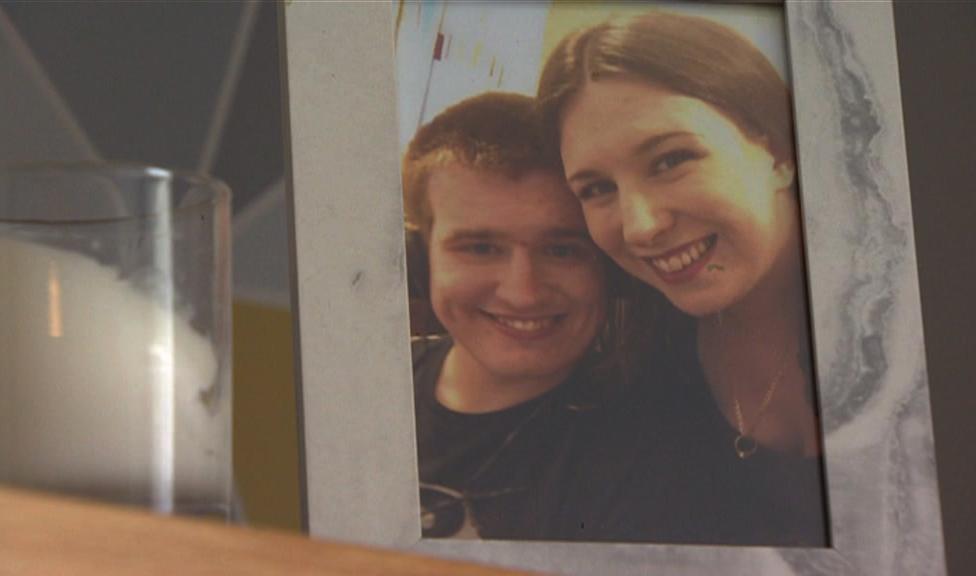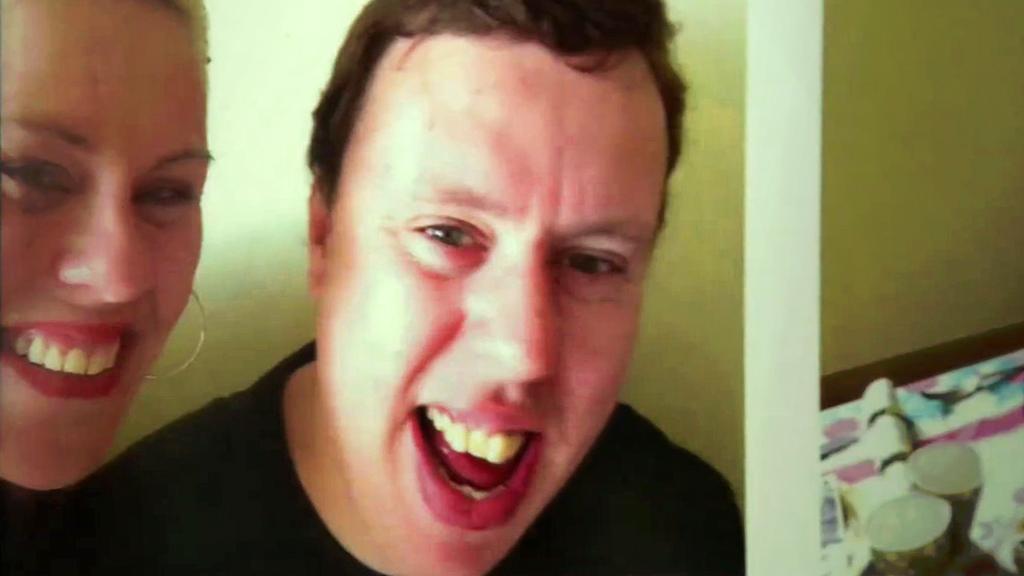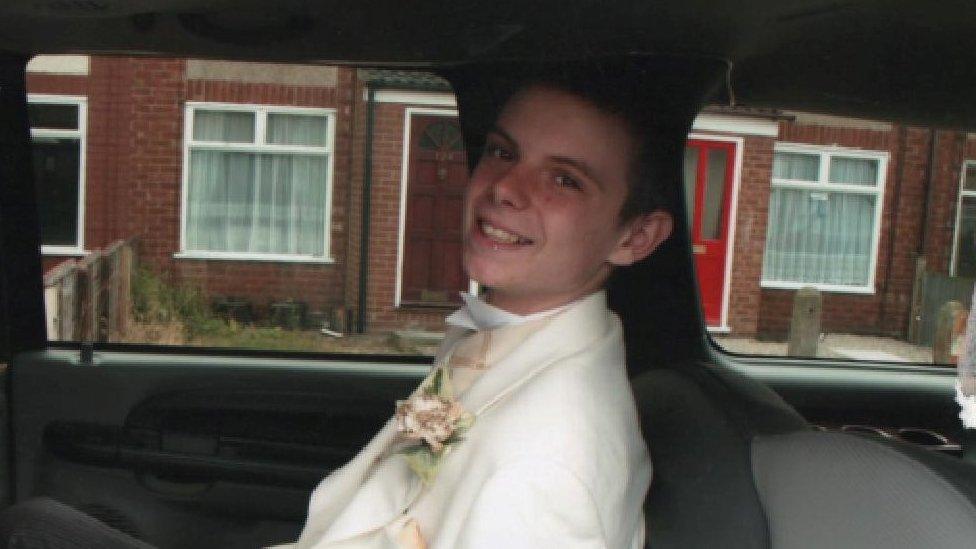Autism: Family's four-year wait for man's release from hospital
- Published

Elliot is "really homesick" at a mental health unit far from his home, his sister Beckii says
The sister of a man with autism has called for more local support for families like hers after waiting four years for her brother to be released from a mental health unit miles away.
Beckii's family asked for temporary assistance in 2018 because Elliot, 26, was self-harming.
He was then taken to a hospital a long distance from his North Yorkshire home.
The Department of Health said it was trying to ensure the "right support" was in place within local communities.
Delays in finding Elliot suitable local accommodation and carers meant he would still not be allowed out until the summer, Beckii said.
The delays had been "never-ending", she said, adding that there needed to be facilities to treat people in their own communities rather than in hospitals.
"Taking them hundreds of miles from home is just not the answer. It triggers them more, they're scared and they just don't know what is happening," she said.
"He's had enough, he's really homesick and we've had enough really now. He doesn't need to be there.
"He's fit for discharge since September. So it's just the constant wait for everything else to be ready."

Beckii is calling for more care facilities within local communities for people with autism
Autism is a lifelong developmental disability which affects how people communicate and interact with the world. It is a spectrum condition and affects people in different ways.
Felicity Stephenson, from the National Autistic Society, said the country was in the middle of a "care crisis" and that successive governments had not invested enough in community services.
Ms Stephenson described the situation as a "national scandal".
A lack of community care support could trigger a crisis in people with autism which leads to them being sectioned, despite autism itself not being a mental health disorder, she said.
"We hear time and time again that autistic people are ready to be discharged. They don't have a treatable mental health condition anymore," she said.
"There's no reason for them to be sectioned in hospital, which could be miles and miles away from their families. But because there aren't any services within the community for them to move into, they remain in hospital."
NHS figures show more than 1,200 people with autism are being held in mental health hospitals, an increase of 10% since 2015.
A Department of Health and Social Care spokesperson said: "We are reducing the number of autistic people and people with a learning disability in mental health hospitals, as well as the reliance on in-patient care.
"That's why we are investing in community services and supporting discharges with £90m of additional funding.
"We want to ensure the right support is in place so autistic people can have the best possible quality of life in their community."

Follow BBC Yorkshire on Facebook, external, Twitter, external and Instagram, external. Send your story ideas to yorkslincs.news@bbc.co.uk, external.
Related topics
- Published24 November 2021

- Published14 July 2021
